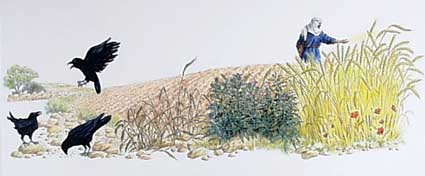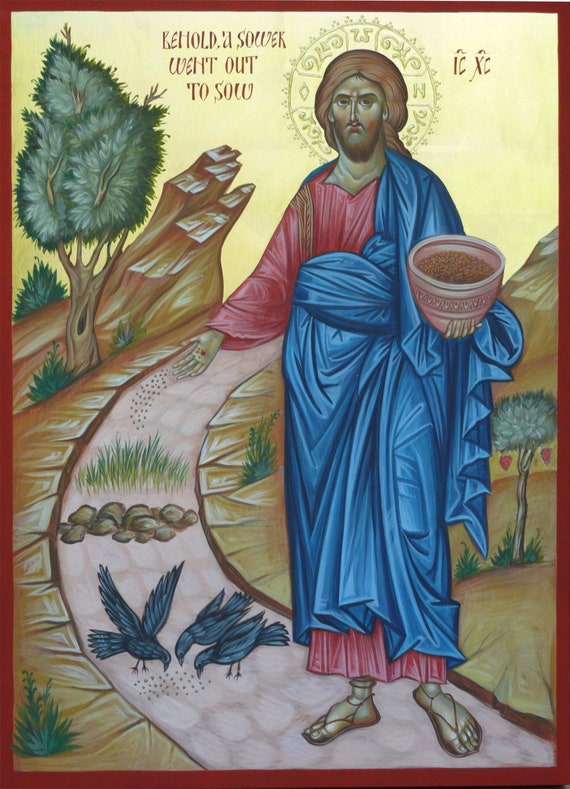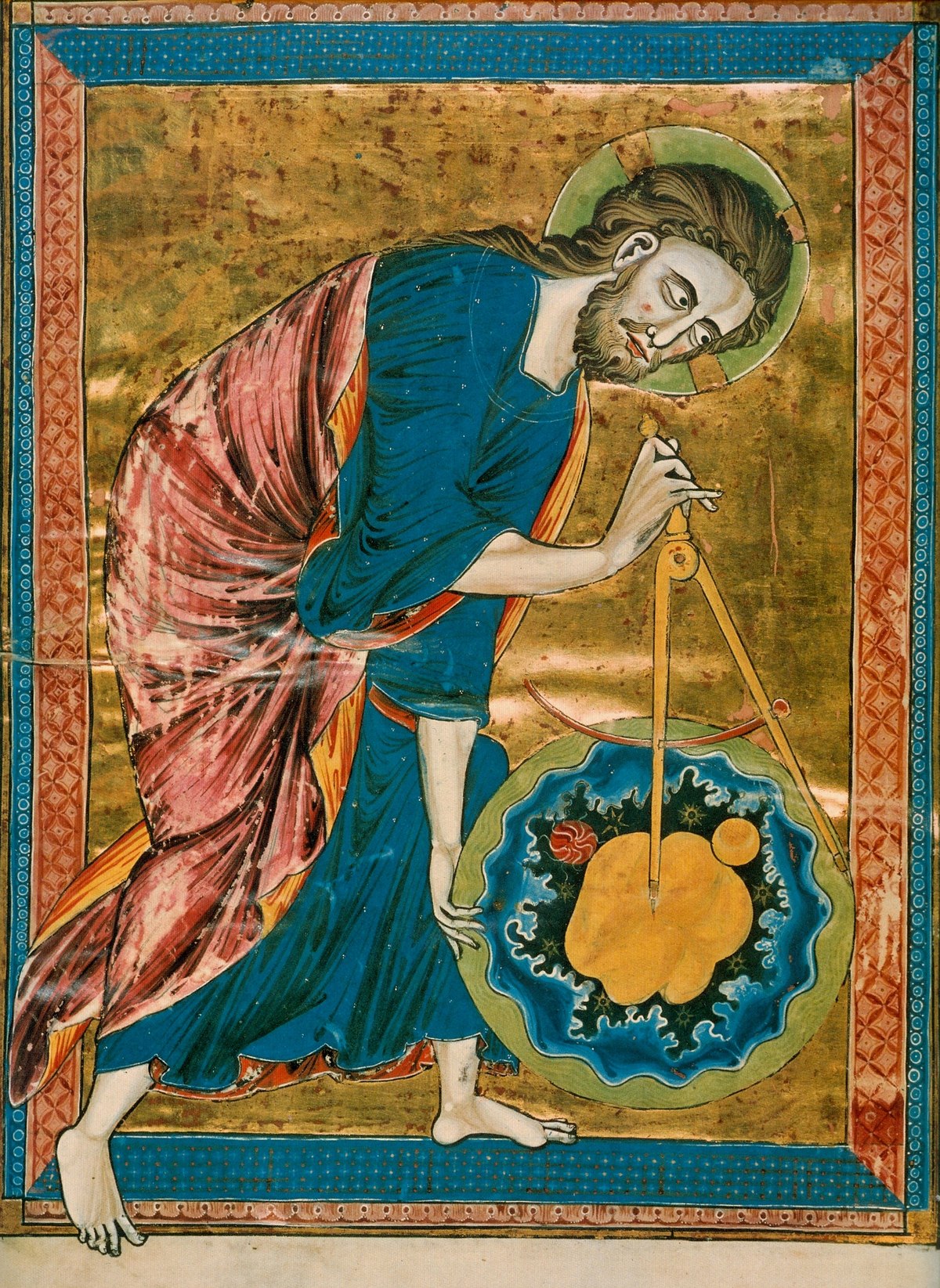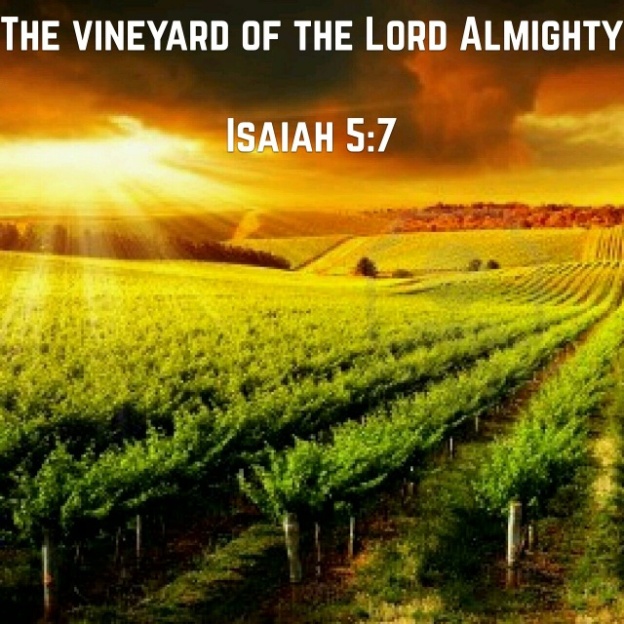
The Sower (God the Father) sows the seed (the Word of God, Jesus Christ) liberally, to spread over a creation which was returning to the “formlessness and void” of its original state. This is the beginning of the recreation, the redemption of God’s creation.
Alas, in its fallen state it is not received as the first creation received the Word. In its fallen state there are thorns, and thistles, and rocks, and hard paths that work against reception of the Word. Today we meditate on the hard path, about which Jesus said, “Those by the wayside are the ones who hear; then the devil comes and takes away the word out of their hearts, lest they should believe and be saved.”
The word for “wayside” is exactly the same as the word for “road” or “path.” What do we make of this allusion? Jesus refers to Himself as the “path” when He says, “I am the way [the same Greek word], the truth, and the life. No one gets to the Father but through Me.” Mystical and gnostic traditions often expound on the metaphor of the path, as in the parable referenced yesterday.
There’s yet another tradition which centered on the “path” or “walkway,” and that is Judaism. According to Judaism, it’s way of life is outlined in the Halakhah. From the verb “to walk,” the word means “the path that one walks.”
What are the sources of the Halakhah? It comes from the Torah (the written Law from the five books of Moses), but almost more importantly, from the oral traditions of the rabbis, and from custom. The Halakhah is exactly what Jesus was refuting when He said, “All too well you reject the commandment of God, that you may keep your tradition. For Moses said, ‘Honor your father and your mother’; and, ‘He who curses father or mother, let him be put to death.’ But you say, ‘If a man says to his father or mother, “Whatever profit you might have received from me is Corban”—’ (that is, a gift to God), then you no longer let him do anything for his father or his mother, making the word of God of no effect through your tradition which you have handed down. And many such things you do.” (Mark 7: 9-13)
The path, being the first object lesson from the Parable of the Sower – even as the Gospel was proclaimed first among the Jews (Romans 1: 16) – nicely invokes the reason for the Jewish rejection of the Messiah, Jesus. Simply put, their “path” (Halakhah) prevented them from hearing the Word. It didn’t even have a chance to germinate, so firm was the rejection. St. Paul’s teaching that the cross of Christ ended the bondage to the rules and regulations of the Torah. Not so for many of the Jews. For them, there was a veil over their hearts that prevented them from receiving the Word, a veil that is taken away only in Christ. (II Corinthians 3: 14)
If that is the specific reference, a more general reference would be any and all who cannot hear the Gospel because their religion is one of legalistic observances: “Do not touch, do not taste, do not handle…” (Colossians 2: 21) But the Gospel is one of freedom from all such observances. Yes, there are certain disciplines – even as prayer and fasting are taught by Christ – but these are observed in the freedom of the Gospel, not markers of what a Christian is or does.
Not so for the Jew or for many other traditions, who are all alike in their basic teachings that salvation comes by our “walking the path” toward God, but differ only the legalistic practices they perform.
Here again, Christianity stands out as a religion centered on a new idea of the path. “Make straight the way of the Lord,” said John the Baptist, because He was making His way toward us! Jesus is the way to the Father, because He has first become the Father’s way to us! And the “way” that Jesus is to the Father is not a structured pattern of right behavior or legalistic observance. Rather, it is He Himself, and faith in Him. Unlike all other faiths, our faith doesn’t center on a pattern of life, but on the Life Himself, who eliminates all such patterns of life and sums up the Christian life quite simply: Love God and love others. As the New Testament prophesied of old promised, “I will put My law in their minds, and write it on their hearts.” (Jeremiah 31: 33)
Switching gears to another theme in the path metaphor, we learn from Christ that the devil is the one who takes away the Word from their hearts – in the Book of Revelation He warns of the “those who say they are Jews and are not, but are a synagogue of Satan” (Revelation 2: 9). There is a psychological side to the devil’s work.
The devil is the author of doubt and despair in the Christian’s life. Doubt is the belief that “This Word cannot be true.” Despair is the belief that “This Word cannot be true for me.”
Doubt has shipwrecked many a young person’s faith when they go to college and face the intellectual and scientific challenges to the faith. Against this, we simply need to remember that, insofar as science is about facts and evidence, Christianity is certainly scientific. 500 witnesses saw the resurrected Christ! That is a fact, a fact many were willing to undergo torture rather than give up. Keep in mind, also, that Christianity gave birth to science, precisely because it laid the foundation for an objective and universal Truth accessible to all (something we are losing to the forces of cultural relativism).
Despair has also shipwrecked many a faith. When the despairing ruminate on the depth of their depravity and sin, they believe they are undeserving of the Gospel. Jesus’ teachings all over should mollify the despairing heart. In the Parable of the Unforgiving Servant, the King forgives the Servant the equivalent of hundreds of millions of dollars. Who has that kind of debt but small nations! Yet, Jesus often uses hyperbole to teach His love. It’s a love that knows no bounds. He instructs His Church to forgive 70 times 7 times, because His death atoned for all sins.
Adherence to a religion of legalistic observance, doubt, and despair, these are all elements that make the path hard, that prevent the Gospel from penetrating the heart. May we always be spared this path, and remain on the true Way!








